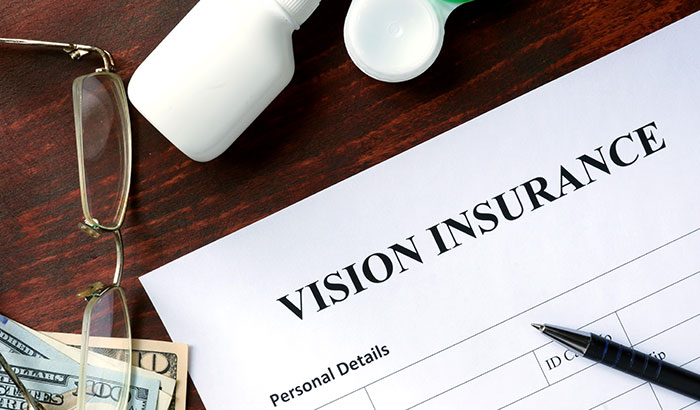Getting new glasses is an exciting experience that can quickly become a headache if you don’t understand your vision insurance.
Vision insurance is a type of insurance that helps cover the cost of eye exams, glasses, and contact lenses. It is often offered as an optional benefit through employer-sponsored health plans or as a standalone policy. Some programs may also cover the cost of LASIK or other vision correction procedures.
Here is everything you should know about vision insurance.
The Type of Plan Matters
When choosing a vision insurance plan, it is crucial to consider the cost of the plan, the network of providers, and the coverage offered. Some plans may only cover a portion of the cost of glasses or contacts, while others may have a set dollar amount you can use towards these expenses. It is also important to check whether the plan has out-of-network coverage.
HMO (Health Maintenance Organization) and PPO (Preferred Provider Organization) are two very different types of vision insurance plans.
HMO Insurance
HMO vision insurance plans typically require choosing a primary care optometrist or ophthalmologist from a network of providers. You will usually need a referral from your primary care doctor to see a specialist.
If you see an out-of-network provider, you may be responsible for paying a more significant portion of the entire visit cost. HMOs typically have lower out-of-pocket costs but less flexibility in choosing providers.
PPO Insurance
PPO vision insurance plans, on the other hand, give you more flexibility in choosing providers, but you may pay more out-of-pocket costs if you see an out-of-network provider. PPOs generally have a more comprehensive network of providers, and you don’t need a referral to see a specialist.
It’s important to carefully review the network of providers and the costs associated with each plan before making a decision. Make sure your preferred eye doctor or optometrist is in-network before signing up for a plan.
What Vision Insurance Typically Covers
As mentioned before, different plans cover different things. Therefore, it’s essential to speak with your provider or read over your insurance information for an in-depth look at what your plan will cover.
However, vision insurance typically covers the following:
- Routine eye exams: most vision insurance plans will cover the cost of an annual or biannual eye exam, which is used to check for common vision problems and eye diseases.
- Prescription glasses or contacts: vision insurance plans often cover a portion or all of the cost of prescription glasses or contacts.
- Correction of certain vision problems: some vision insurance plans may also cover the cost of treatment for certain vision problems, such as nearsightedness, farsightedness, and astigmatism.
- Lenses and frames: many vision insurance plans will cover the cost of lenses and frames for eyeglasses, and some plans may also cover the cost of designer frames.
- Discounts on vision-related products or services: some vision insurance plans may offer discounts on non-prescription sunglasses, contact lens solutions, and other vision-related products or services.
It is also a good idea to compare the cost and coverage of different plans to find the one that best meets your needs.
What Vision Insurance Doesn’t Cover
It is also important to note that vision insurance is not the same as medical insurance and typically does not cover treatments for eye diseases or conditions — these types of treatments are usually covered by medical insurance.
Vision insurance typically does not cover the following:
- Treatment for eye diseases or conditions such as glaucoma, cataracts, and macular degeneration. These treatments are typically covered by medical insurance.
- LASIK or other elective vision correction procedures unless they are deemed medically necessary by a doctor.
- Non-prescription sunglasses or accessories.
- Contact lenses that are not considered medically necessary.
- Routine eye exams for individuals over a certain age, such as 65 or 70, who are not considered at risk for eye diseases.
- The cost of corrective lenses or frames exceeds the plan’s covered cost. Some plans may have a set dollar amount that can be used towards these expenses, while others may only cover a portion of the cost.
It is important to check the details of your vision insurance plan to understand what it does and does not cover.
Is Vision Insurance Worth It?
Whether or not vision insurance is worth it depends on your individual needs and circumstances. Here are some things to consider when determining if vision insurance is worth it for you:
- Cost: compare the cost of the vision insurance plan to the cost of paying for eye exams, glasses, and contacts out-of-pocket. If the plan is less expensive in the long run, it may be worth it.
- Frequency of use: if you need eye exams and glasses or contacts regularly, a vision insurance plan may save you money in the long run.
- Coverage: check the plan’s coverage and compare it to your needs. Ensure the plan covers the services and products you need and that your preferred eye doctor or optometrist is in-network.
- Availability: if you’re already covered by an employer-sponsored health plan offering vision insurance, it may be worth enrolling in that plan. Consider purchasing a standalone policy if a vision insurance plan does not cover you.
- Other needs: if you have a medical condition requiring frequent eye doctor visits, vision insurance may be worth it.
Ultimately, whether vision insurance is worth it for you depends on your specific needs and circumstances. It’s crucial to weigh the plan’s cost and benefits before deciding.
Get the Best Glasses Brands at The Spectacle
Dealing with insurance can put a damper on your glasses-shopping experience. At The Spectacle, we accept most vision insurance plans, so all you have to worry about is choosing from some of the best glasses brands when you visit us.
Get in touch with our team of experienced opticians today and let us guide you through the process, whether you’re looking for custom glasses or the classics. Call us at 801-359-2020 or fill out our online contact form today.

